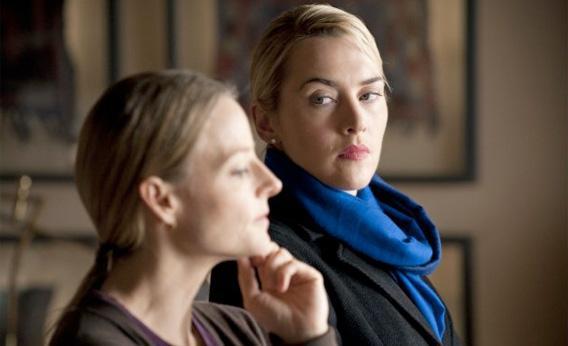In the golden age of streaming, where Netflix’s algorithm unearths forgotten gems like buried treasure, few rediscoveries pack the venomous punch of Carnage. Roman Polanski’s 2011 black comedy, a claustrophobic chamber piece adapted from Yasmina Reza’s Tony-winning play God of Carnage, has slithered back onto the platform in November 2025, coinciding with a wave of awards-season retrospectives honoring its stellar ensemble. Starring Jodie Foster and Kate Winslet alongside Christoph Waltz and John C. Reilly, this 79-minute firecracker of a film transforms a simple parental sit-down into a battlefield of egos, exposing the savage underbelly of civilized discourse. Originally released amid Polanski’s ongoing exile and the #MeToo reckoning, Carnage divided critics for its director’s baggage but earned universal acclaim for its performances—two Golden Globe nods for the leading ladies alone. Now, with Netflix’s global push, it’s surging in viewership charts, drawing fresh buzz on X and TikTok for its “hilariously uncomfortable” take on modern family feuds. Viewers are tweeting confessions like, “Watched Carnage on Netflix—laughed so hard I cried, then questioned my entire marriage,” while therapists report a spike in “Polanski-induced couple’s counseling” sessions. At a time when true-crime docs dominate dark content, Carnage reminds us that the scariest monsters are the ones in our living rooms: ourselves. Polanski, directing from a screenplay co-penned with Reza, bottles the essence of upper-middle-class pretension in a Brooklyn brownstone, proving that laughter and loathing are two sides of the same shattered incisor. If you’ve ever smiled through gritted teeth at a PTA meeting, this is your cinematic mirror—warped, wicked, and wickedly entertaining.
What makes Carnage endure 14 years later, especially in a post-pandemic era of Zoom-fueled passive-aggression? It’s the film’s surgical precision in peeling back the layers of social niceties, revealing the primal “carnage” beneath. Set almost entirely in one impeccably bourgeois apartment, the story kicks off with a deceptively serene playground vignette: Two 11-year-old boys, Ethan Longstreet and Zachary Cowan, tussle over a dispute, ending with Zachary smacking Ethan in the mouth with a stick, knocking out two teeth. The parents convene for a “cordial” chat to hash it out, but what begins as a model of progressive parenting devolves into a symphony of sabotage. Penelope Longstreet (Foster), a self-serious writer of coffee-table tomes on Darfur, and her affable but hapless husband Michael (Reilly), a wholesale cookware salesman, host the Cowans: Nancy (Winslet), a steely investment consultant, and Alan (Waltz), a pharma lawyer perpetually glued to his phone defending a scandal-plagued drug company.
Thematically, Carnage is a masterclass in the absurdity of adult civility, skewering class divides, marital hypocrisies, and the performative empathy of the liberal elite. Reza’s script, a 2008 Broadway smash that snagged the Tony for Best Play, thrives on escalating absurdities: The discussion veers from child psychology to racial politics, professional ethics, and personal betrayals, all while the couples’ facades crack like cheap porcelain. Polanski amplifies this with visual confinement—sweeping Steadicam shots circle the room like a predator, while tight close-ups capture micro-expressions of disdain. Pawel Edelman’s cinematography bathes the space in warm, honeyed light that turns cloying, mirroring the characters’ saccharine intentions gone sour. Alexandre Desplat’s minimalist score—sparse piano plinks and ominous swells—punctuates the chaos without overpowering the dialogue’s whip-crack rhythm.
At its core, the film interrogates the illusion of control: These parents, armed with iPhones and artisanal cobbler, fancy themselves enlightened, yet they’re as impulsive and vicious as their offspring. Penelope’s sanctimonious rants on global injustice clash with her inability to brew decent coffee; Alan’s corporate callousness bleeds into his parenting philosophy (“Kids are savages—deal with it”). It’s a dark comedy that bites hardest at feminism’s fringes—Nancy and Penelope’s fleeting solidarity dissolves into gendered barbs, while the men’s boyish camaraderie exposes patriarchal blind spots. Critics in 2011 hailed it as “a pressure cooker of pretension,” but 2025 lenses amplify its prescience: In an age of cancel culture and performative allyship, Carnage mocks the performative outrage that masks self-interest. Runtime flies by in a haze of escalating hilarity and horror, leaving audiences exhausted yet exhilarated. Rotten Tomatoes holds steady at 74% from critics, buoyed by a 62% audience score that’s climbing with Netflix’s revival. Not a blockbuster, but a boutique bomb—perfect for binge-watchers craving substance over spectacle.
Socially, Carnage‘s return stirs debate: Polanski’s absence from the 2011 Oscars (he won for Best Director at Venice but skipped) echoes in today’s conversations about separating art from artist. Yet, the film’s feminist undercurrents—Winslet and Foster’s characters dismantling male complacency—resonate anew, with outlets like Variety noting its “timely takedown of white liberal guilt.” It’s not flawless; the single-location stasis can feel stagey, a holdover from the play that Polanski doesn’t fully transcend. But in a streaming sea of slop, Carnage is caviar: bitter, brilliant, and begging for a second bite.
The Cast: A Quartet of Titans in a Pressure Cooker
Carnage‘s secret sauce is its cast—an all-star tetralogy that elevates Reza’s words into weaponized wit. Jodie Foster, 48 at filming, snaps out of directorial mode (post-Little Man Tate) to unleash a tour de force as Penelope, the epitome of strained sophistication. Her Penelope is a tightly wound coil of condescension, eyes narrowing like laser sights over every perceived slight. Foster, an Oscar double-winner (The Accused, The Silence of the Lambs), channels the passive-aggression she honed in Contact, but amps it to caricature—her meltdown over a lost phone becomes a primal scream that earned her a Golden Globe nod. Critics quibbled her performance veers “hysterical,” but in 2025, it’s reevaluated as a bold subversion: Foster, often the stoic intellect, revels in unraveling, her face contorting from smug to shattered. Off-screen, she bonded with the cast over Polanski’s meticulous table reads, later telling The Hollywood Reporter, “It was like group therapy—except we paid to hate each other.”
Kate Winslet, 36 and fresh off Mildred Pierce‘s Emmy sweep, is volcanic as Nancy, the no-nonsense broker whose polish cracks under pressure. Winslet, the eternal ingenue of Titanic, weaponizes her earth-mother allure into icy barbs, her American accent (honed for The Reader) dripping disdain. A physical comedienne par excellence, she owns the film’s gross-out pinnacle with a vomit scene that’s equal parts Bridesmaids and Requiem for a Dream—messy, mortifying, and miraculously funny. Her Golden Globe nomination was well-earned; The Guardian praised her “edgy restraint exploding into rage,” a pivot from dramatic heft to comedic carnage. Winslet, ever the ensemble player, credited Polanski’s “safe space” for the role’s vulnerability, joking in a 2025 Variety chat, “I threw up for art—now Netflix owes me hazard pay.”
Christoph Waltz, in his English-language breakout post-Inglourious Basterds, slithers through as Alan with serpentine charm. The Austrian powerhouse, an Oscar double-winner for Tarantino, dials his menace to mordant: Alan’s phone addiction isn’t just plot device but character flaw, his deadpan delivery (“This is not a negotiation—it’s a deposition”) landing like guillotines. Waltz’s comic timing, honed on Vienna stages, shines in asides that gut-punch—his variation on the suave villain is less Django Unchained whip-crack, more velvet noose. The New York Times called him “the film’s sly anchor,” and his chemistry with Winslet crackles with marital frost.
John C. Reilly, the chameleonic everyman (Chicago, Walk Hard), grounds the frenzy as Michael, the rumpled softie whose teddy-bear facade hides a petulant core. Reilly’s Brooklyn brogue rolls like thunder, his physicality—slouched on the couch, nursing scotch—mirroring the audience’s discomfort. He steals quieter beats, like a confessional about his hamster’s demise, blending pathos with pathos. The ensemble, rounded by bit players like Eliot Berger as the boys’ off-screen voices, won Boston and San Diego Film Critics awards for collective brilliance. Filmed in Paris (standing in for Brooklyn) over 38 days, the shoot was a “pressure cooker,” per Reilly—improv sessions fueled the script’s zingers. In 2025 reunions, the cast reflects fondly: Foster and Winslet, now directors themselves, hail Carnage as a “sisterhood forged in fury.”

Spoiler Alert: Plot Twists That Turn Civility to Shreds
Warning: Major spoilers below. If you haven’t streamed yet, pause—Carnage’s delights are in the descent.
The film’s “twists” aren’t whodunits but relational reversals, each peeling back hypocrisies like onion skins, leaving the room (and us) raw. It opens with false harmony: The Cowans arrive bearing a peace offering—photos of Ethan’s bloody mouth, documented like crime-scene snaps. Penelope’s earnest plea for “responsibility” sets the tone, but the first pivot hits at 20 minutes: Nancy vomits explosively over the coffee table, a tidal wave of red wine and cobbler that soaks documents and dignity alike. It’s no accident—stress-induced, it shatters the facade, turning hosts to hosts-with-the-most-regret. Laughter erupts as Penelope dabs futilely, but the real gut-twist? This “accident” exposes class warfare: The Longstreets’ artisanal spread mocks the Cowans’ urban polish, with Alan quipping, “Nature calls—and it answers with vomit.”
Mid-film, alliances fracture in a barrage of revelations. Michael’s scotch-fueled confession drops the bomb: He’s just fired from his job after “restructuring” excuses his boss’s affair—mirroring the pharma scandal Alan’s defending on speakerphone. This unravels Penelope’s “stable provider” myth, her shriek—”You’re unemployed?!”—igniting a marital implosion. Enter the hamster subplot: Michael’s tale of flushing their pet down the toilet (after it escaped and ate their son’s parakeet) isn’t whimsy—it’s a savage metaphor for parental failure, horrifying the childless Cowans and flipping Penelope from victim to villain. “You drowned a hamster?” Nancy gasps, her revulsion bonding her briefly with Penelope—until it sours into slut-shaming over Michael’s implied infidelity.
The third-act carnage crests with cross-couplings: Alan and Penelope share a conspiratorial scotch, bonding over disdain for their spouses, while Nancy and Michael flirt via shared cynicism—Nancy even grabs his crotch in a desperate bid for leverage. The ultimate twist? The boys have reconciled off-screen, playing video games as if the fight never happened, revealed via a phone call at the 70-minute mark. The parents, oblivious in their echo chamber, devolve into playground taunts—Penelope hurls Alan’s phone into the chocolate cake, screaming obscenities in French. Fade out on the wrecked apartment, the Cowans fleeing into the rain, Penelope’s book toppled in the mess. No resolution, just rubble: The “carnage” was never the kids’—it was the adults’, a circular reveal that indicts their arrested development.
These beats, faithful to Reza’s play but amplified by Polanski’s pacing, aren’t shocks for shock’s sake—they’re satirical scalpels, dissecting how good intentions breed bad blood. Roger Ebert noted the “annals of the upper muddle class,” a perfect encapsulation of the film’s gleeful nihilism.





